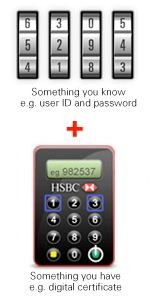I wonder if there is going to be a new wave of increased security when logging in to financial institutions. A few weeks ago HSBC UK told me that in January I will be issued with a new device to be used when logging in. Sounds similar to the RCA security key, except it comes with a keypad for me to enter my PIN and then type in the security code it displays, which will be different at every login.
Last week I got the following message from HSBC USA that they are changing their login process as follows:
And today I get an e-mail from Treasury Direct that they also are changing their login process as follows:
Anyone else seeing upcoming changes?
Last week I got the following message from HSBC USA that they are changing their login process as follows:
At HSBC, we are always searching for ways to protect the security of your account.
Starting November 13, HSBC will be implementing a new technology to keep your Personal Internet Banking account as secure as possible.
Your existing user name, password, and security key will remain the same. Now, you will be prompted to enter different characters of your security key each time you log in. You will enter these characters using your computer keypad rather than the virtual keyboard you have been using. This will aid in deflecting "keystroke logging" the most frequent form of password theft.
HSBC is making this change as part of our ongoing efforts to identify the most secure technology available for our customers.
And today I get an e-mail from Treasury Direct that they also are changing their login process as follows:
Dear TreasuryDirect Account Holder:
We're committed to providing a secure environment for your investments and personal information.
In a few weeks, we'll be replacing the access card with personalized images, one time passcodes, and computer registration as new layers of security to your TreasuryDirect account. Continue to use your access card until you're notified within your TreasuryDirect account.
Thank you for using TreasuryDirect.
Anyone else seeing upcoming changes?

